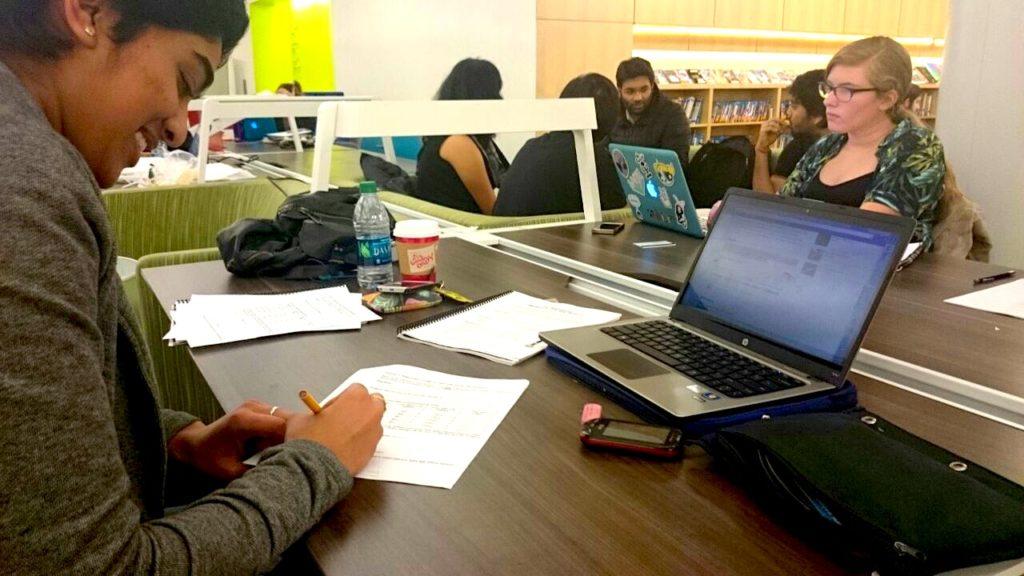By Rachel Morford, news correspondent
Procrastination is by no means a new invention, but a new survey shows that social media takes time from studying and projects the most.
Research conducted by Stop Procrastinating, an app that disconnects users from the internet in attempts to boost productivity, finds social media and other internet time-wasters, to be the leading culprits behind millennial procrastination trends. The survey, analyzing the study habits of 1500 US undergraduate students, consistently found students identifying relatively new technological luxuries as the cause of their procrastination.
Phu Lwin, a freshman undeclared student, identifies social media as a contributor to her procrastination.
“I am very distracted by social media…as an international student, it is important to stay connected,” Lwin said.
Of those polled, 74 percent identified that the degree to which internet distractions fueled their procrastination was significant and worrying. Another 64 percent of those polled admitted to having lost their train of thought after responding to a social media alert while studying. This is compared to the 14 percent that identified television as the cause of their distractions
Lwin, however,seems to have mixed feelings about procrastination as a whole.
“I know that procrastination is bad – but I feel like it is a part of my learning style. I work better under pressure, my ideas are just better then, ”Lwin said.
The study also shows that 51 percent of students admit to losing at least an hour of productivity a day to social media and internet distraction. About 44 percent of those polled were worried about the overall quality of their work decreasing due to procrastination caused by the internet.
Freshman computer science major Michael Wang believed that findings were underreported and categorically a terrible habit.
“If I could change one thing about myself, it would be that,” Wang said. “At this point, I think telling someone to stop procrastinating is about the same as telling someone to stop being depressed. That’s just not how it works.”
However, Wang did not view the internet or social media as solely culpable for his procrastination habits.
“Social media is definitely the easiest, most convenient form of procrastination. But if it wasn’t that, it would be something else. I once taught myself how to do a handstand,” Wang said.
Yulexa Bradford, a freshman psychology major, disagreed with the study’s conclusions completely.
“I don’t see the internet as the directly the cause of procrastination. A lot of it is just wanting to enjoy oneself,” Bradford said.
Bradford identifies herself as a procrastinator, but does not see it as an overall detriment to her studies and instead inherent to many individuals’ work styles.
“If I need to do something, I’m going to do it – there’s no pull from procrastination stopping me,” Bradford said.
Photo by Kariman Abuljadayel









